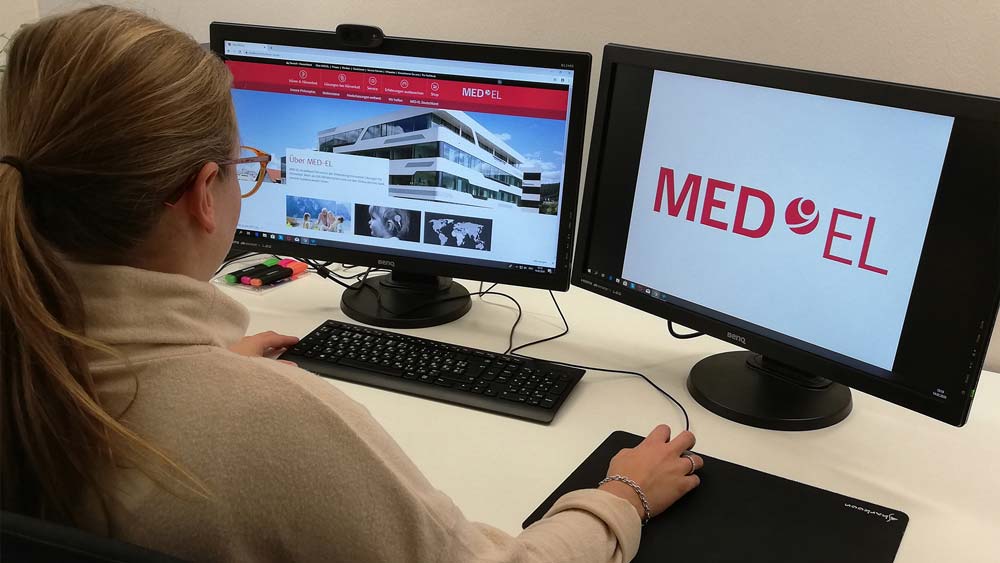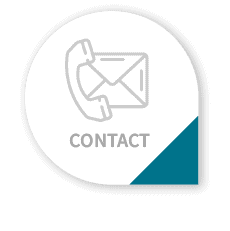MEINRAD has been MED-EL’s translation partner since 2013. But MEINRAD also provides wide-ranging technical support for the medical technology company based in Innsbruck. Find out here how MED-EL and MEINRAD have worked together to develop a workflow which saves time for both parties and delivers the best results.
The translation process: isn’t there a better way?
When MED-EL began looking for a new translation partner in 2013, they knew what they wanted: the new partner needed to be reliable, open and honest in its communication, and willing to ask the necessary questions in order to deliver high-quality translations. Doris Wimmer, Marketing Manager at MED-EL, was tasked with finding such a partner – and at the 2013 tekom annual conference she met MEINRAD for the first time. We explained how MEINRAD won MED-EL over, and how the partnership works in detail, in a previous post.
But it soon became clear that there was another aspect of the collaboration that had the potential to make it particularly productive: MEINRAD’s technical expertise. “When we started working with MEINRAD, at first we were simply looking for translators. We hadn’t worked with any translation software before, so we hadn’t needed any technical support”, explains Wimmer. MED-EL had previously copied and pasted texts and sent files via e-mail – a laborious, time-consuming and often risky process. But that was all to change.
E-mail chaos and laborious copying and pasting
Until then, MED-EL had sent files for translation via e-mail. But as their workload increased, this process became more time-consuming and stressful.
And that wasn’t the only technical issue they had. Wimmer explains how they used to work:
“We would have a website which needed to be translated into X languages. The translation process involved the following steps:
- We had a CMS system which could export files in XML or HTML format.
- In order to translate the text in the files, someone from the website team copied the texts to be translated from the XML code into an Excel spreadsheet.
- We sent the Excel file to the translation agency, and we would get the whole thing back in Vietnamese or whichever language.
- Then the web designer (who didn’t speak Vietnamese) copied each row individually back into the XML code.”
Sound like a lot of work? It was. “It always took such a long time, and of course there was a big risk that it would result in mistakes”, says Wimmer. And as MED-EL grew, the number of languages they needed to translate all these texts into reached 40 – far too big a workload to handle with copy and paste. The various file formats sometimes caused problems too, as they weren’t always compatible with Word or Excel.
Goodbye copy and paste, hello advanced translation software
Wimmer had previously worked as a freelance translator herself, so she knew there was a better way. “We have so many texts we need to translate that 20th-century copy and paste technology simply isn’t a viable solution.”
A computer-aided translation (CAT) tool would make MED-EL’s translation workflows considerably more efficient. They needed software which would filter the content of a file, no matter what the format, so that only the text that needed to be translated was displayed. And every member of staff needed to have access to the file, regardless of what was installed on their computer.
Technical support and software training from MEINRAD
When MED-EL began using the new CAT tool in 2015, it took a while for things to settle down. As so often when using new software, there was a lot to learn. MED-EL faced the challenge of adapting the CAT tool to their internal workflows and requirements in order for everything to work as quickly and effectively as possible.
“As soon as we began using the new system, we received lots of support from MEINRAD with all the technical issues. We worked together to establish a workflow that suited both of us”, says Wimmer.
MEINRAD’s support included advice and guidance in the following areas:
- Personal software training: At tekom and other conferences, MEINRAD and MED-EL met in person to discuss the latest developments and new ways of working. Meinrad and Lukas Reiterer also visited MED-EL on several occasions to go through all relevant issues.
- Templates: Lukas Reiterer, Project Manager and contact person for technical issues, created project templates in the new CAT tool that were customized to suit MED-EL’s needs.
- Filter settings: Scripts were written which allow website texts to be processed more effectively in the CAT tool and give translators a better translation environment.
No one-size-fits-all solution
There’s no one-size-fits-all solution, because there are different challenges for different customers. So MEINRAD’s Project Managers and technical support team take the time to develop solutions that meet clients’ individual needs. As a manufacturer of medical equipment, MED-EL is subject to stringent regulations – and so are their translations.
The biggest challenge was to meet the company’s strict IT requirements. “With MED-EL, some of the working methods we use with other clients weren’t possible as a result of the stringent safety regulations”, explains Lukas Reiterer. But he investigated a number of alternatives, which involved intensive contact and communication (including visiting MED-EL a number of times), and eventually he found the right solution.
Optimized workflows for MEINRAD and MED-EL
Over time, MEINRAD and MED-EL have developed and consolidated a workflow that makes data transfer, project management and everything else run like clockwork. Lots of steps that were previously done manually have now been automated: the project is created in the CAT tool, the translator is automatically assigned, and the finished translation is immediately forwarded to the in-house proofreader. It’s effortless – and it means confusing e-mail exchanges and time-consuming copying and pasting are a thing of the past!
“MEINRAD’s technical support and guidance have hugely increased our productivity. Standardizing processes has given us consistency that improves the quality of our texts, and we can now do much more with the same resources”, says Wimmer.
Not standing still
But simply introducing the new software wasn’t the end of the story. Even after working together for seven years, new challenges are always arising – especially when it comes to new file formats: “We’re very grateful for their support in creating filters and finding ways for us to work with the data without interrupting the translation workflow”, says Wimmer. And neither MEINRAD nor MED-EL are standing still. “You never stop learning. MEINRAD is always looking to help us optimize our processes even further and improve the technology we use. Whatever aspect of the translation process, they’re by our side. And that’s crucial as far as we’re concerned: there are two of us, and we have to deliver several hundred translation projects a year in about 40 languages. Without a reliable translation partner by our side, we have no idea how we’d manage.”
We would like to thank Doris Wimmer for taking the time to talk to us and for our partnership so far. Here’s to even more successful projects with MED-EL in future!
The personal designations chosen in the text should expressly refer to all genders in the same way. As far as the male form was chosen in the text, this was done for better legibility. You can find the background to our decision in our article How MEINRAD lives the topic of equality and gender-sensitive language.


